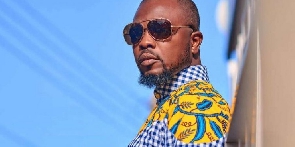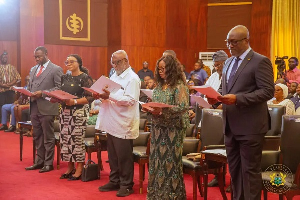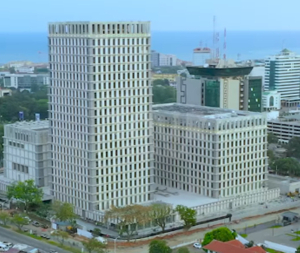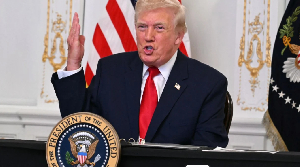: When it became very obvious that his Excellency the former Vice-President of Ghana Alhaji Aliu Mahama was not going to vie for the leadership of the New Patriotic Party (NPP) for election 2012, several persons bombarded my inbox with emails about why he was not going to contest.
They were right in all they did. Those emails were send to me because, I had earlier openly written a series of articles about why I thought Aliu Mahama was the very best to pilot the NPP for election 2012 and unveiled elaborate reasons for my claims.
I must admit that, I was hugely disappointed that, such a very fine gentleman with such huge and overwhelming political experience was not to be part of the race. So what I did was to sit back and monitor the campaign messages of the other aspirants, monitor the activities of their various supporters and to as well find out who Ghanaians would vote for in election 2012 among the other aspirants. What I did was that, I engaged the services of research assistants in the ten regional capitals of Ghana. I requested of them to use unstructured and structured interviews among other methods to get me answers to the question: who among the current aspirants of the NPP will Ghanaians vote for if they were to be placed on same ballot paper with President Mills for election 2012? It must be emphasized that, the research was not tot find out who would emerged the candidate of the NPP after its primaries to elect its candidate in August. The reason is that, it makes every sense for the NPP delegates to vote tactically to elect a leader who would be electable by Ghanaians not necessarily who will be elected as the NPP candidate for election 2012. In all developed democracies political parties do not just present any candidate for elections. Research units of political parties are usually tasked to research the general acceptability of a candidate beyond his popularity within his political party. I will entreat the NPP to do same and not insist on any candidate for historic or “hereditary” reasons but elect a candidate who will not only be a unifier to the NPP but will be able to win the 2012 elections easily. It is with this in mind that I commissioned this “mini” research to inform my political decisions. When the research data was compiled and analyzed it was realized that, nearly 70percent of Ghanaians will be happy to vote Professor Frimpong-Boateng in a Ghanaian election than any of the other aspirants. Some of the reasons given by the respondents for their preference included but not limited to the following,
Firstly, the respondents see him to be very honest and overflowing with patience which they think are excellent for a potential president and said they will vote for him in election 2012 should the NPP elect him as its presidential candidate more than the other aspirants.
Secondly, some of the respondents cited what they said was his distinguished service to the health service of Ghana in particular and Ghana in general and said they will be willing to cast their votes for him should he emerge as the NPP candidate for election 2012.
Another finding of the research was that it established that, Kwabena Frimpong-Boateng has never had any corruption allegation against him in all his public life and the respondents said they will be happy to vote for such an honest gentleman as president of Ghana if his party agrees with them by voting for him in their primaries.
A further findings of the research showed that, the respondents were also happy about his unblemished track record and international exposure and convinced that, he would make an excellent president of Ghana any day. Some of the respondents said Kwabena Frimpong-Boateng has the attraction to win for the NPP crucial floating votes as well as serve as a unique unifier of the NPP at this time more than the other subjects of the research and said they will be willing to vote for him should he emerge as the candidate of the NPP. Subsequent details of the research shall be made available in succeeding publications. It must however, be explained that just like any research this research too has its limitations.
It has however been able to a very large extent take a journey into the minds of the electorate as to who they would probable vote for in a Ghanaian election in 2012 should that candidate be put on same ballot paper as President Mills of the National Democratic Congress(NDC).
AKILU SAYIBU,UK. EMAIL: Akilu.sayibu@live.uwe.ac.uk
Opinions of Wednesday, 19 May 2010
Columnist: Sayibu, Akilu
Why The NPP Should Go For Professor Frimpong-Boateng For 2012 Part (1)
Entertainment













